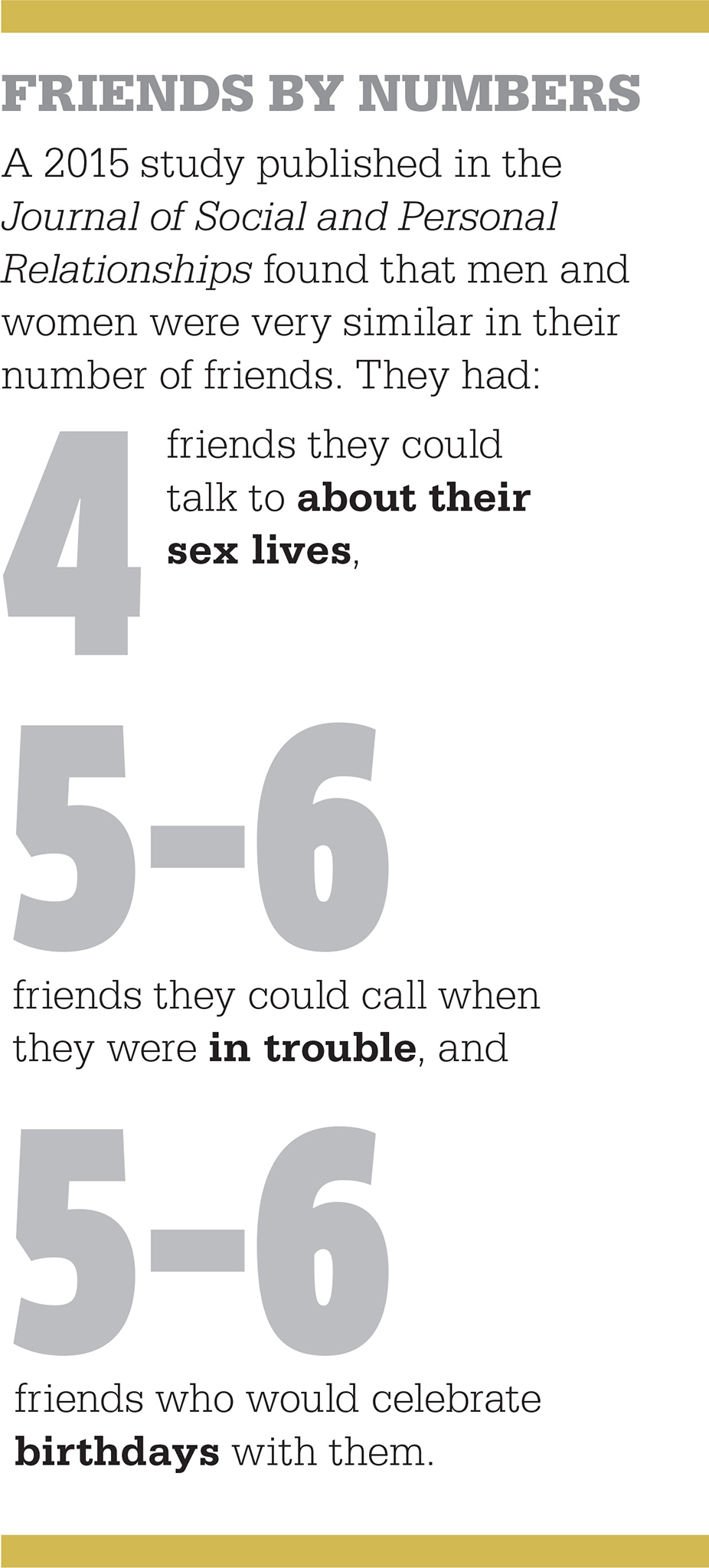
While working to make a success of your life, consciously attend to building and nurturing relationships and friendships. Human connection is the core of well-being, and good relationships can make us more productive.
Studies confirm that friendships aren’t just for mutual support and shared leisure: people with a good social circle tend to enjoy better mental and physical health and greater life satisfaction, and are even longer-lived. If friendships are the key to well-being, productivity, and success, is there a key to friendship?
Are we all alike?
It is commonly believed that female friendships are more intimate than male ones—or that closeness between men tends to be through bonding over shared activities rather than shared revelations. This way of looking at things distinguishes between “side-by-side” and ‘‘face-to-face” closeness. However, this distinction does not hold; men value and need the same dynamic in their friendships. Studies confirm that men, too, rate “self-disclosure” as an important part of friendships, and feel less satisfied when their friends are not confiding. Research suggests that when it comes to platonic relationships, men and women’s needs are more similar than we might think.
What seems clearer is that the number of our friendships shrinks as we move through adulthood. According to the studies, though, this doesn’t necessarily mean older adults are lonelier. Instead, we go through what longevity psychologist Laura Carstensen calls a “pruning effect”: in our thirties and forties, as family and work responsibilities limit our free time, we drift away from people who can’t support our “new normal” and become closer to those who do. Older social circles tend to be smaller, but also more robust: in our maturer years we replace quantity with quality.

The essence of friendship
What are the essential qualities of a friendship? Canadian psychologist Beverley Fehr, in a series of surveys in 2004 with both men and women, found that certain ideas of what a friend should provide were rated more “prototypical”—that is, closer to the core concept of friendship—than others (see “Dimensions of friendship”). Both men and women were more likely to be upset by violations of prototypical friendship rules than of more peripheral rules—but at the same time, more likely to forgive transgressions by friends whose prototypical support could be relied upon. Friendship seems to be a mix of support, acceptance, loyalty, and trustworthiness: if someone can give us those, other things matter less.


 dimensions of friendship
dimensions of friendship
What are the most fundamental friend-like behaviors? Psychologist Beverley Fehr found the following statements were most “prototypical,” or essentially friend-like. Use them to assess your own friendships.
- ✓ If I need to talk, my friend will listen. (Women rated this higher than men, but men still put it at the top of the list.)
- ✓ If I’m in trouble, my friend will help me.
- ✓ If I need my friend, she or he will be there for me.
- ✓ If I have a problem, my friend will listen.
- ✓ If someone was insulting me or saying negative things behind my back, my friend would stick up for me.
- ✓ If I need food, clothing, or a place to stay, my friend will help.
- ✓ If I have a problem or need support, my friend will help.
- ✓ No matter who I am or what I do, my friend will accept me.
- ✓ If we have a fight or an argument, we’ll work it out.
- ✓ Even if it feels as though no one cares, I know my friend does.
- ✓ If my friend has upset me, I feel I can let him or her know.
- ✓ If I have a secret, I can trust my friend not to tell anyone else.
